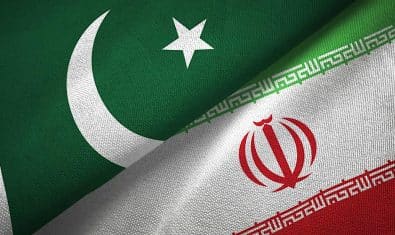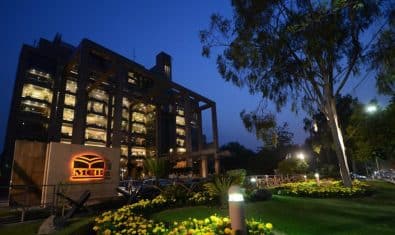In this Opensignal analysis, we look at how the change in behavior during the month of Ramadan affects the mobile experience in five countries with large Muslim populations, including Pakistan.
The dawn prayer (Fajr) signals the start of the daily fast and falls between 3 AM and 6 AM More people waking at an earlier time correlates with a change in average 4G download speed.
During the month of Ramadan, the 3 AM to 6 AM period shows a significant decrease in 4G Download Speed — likely because of greater user activity and network congestion. For two countries the decrease in users’ average 4G download speeds was above 20 percent, Pakistan (21.3 percent) and the Kingdom of Saudi Arabia (25 percent), as more people woke early to eat a suhoor (pre-dawn meal) before Fajr.
When looking at the variation between the month of Ramadan and the previous month, the average 4G download speed is generally lower during the night and early morning (midnight-9 AM) and faster during daylight hours (9 AM-midday).
This stands out most in the period just before dawn (3-6 AM), with Egypt, Indonesia, Pakistan, and the Kingdom of Saudi Arabia all seeing decreases of over 15 percent.
During the month of Ramadan, this three-hour period is the last chance to eat before fasting starts, and also contains the first prayer of the day. There will be more people awake at this time than in previous months, and the increased traffic decreases the download speed. Throughout the rest of the day, an increase in speed indicates reduced network traffic — as people spend less time on their phones.
By taking both the monthly average of download speeds for the full day, and just for the 3-6 AM period we have looked at how the month in which Ramadan falls compares to the three months before and after it.
While there is a sharp decrease in speed for Egypt, Indonesia, Pakistan, and the Kingdom of Saudi Arabia, the daily figures show little difference from the trend. In fact, there is even a slight increase in all five countries, when comparing April to March. This shows that the period of greater user activity and congestion during the early morning is balanced out by reduced network usage during the rest of the day.
Countries with higher proportions of Muslims see larger changes during the month of Ramadan. Pakistan and the Kingdom of Saudi Arabia both have sizable percentages of Muslim populations, at 96 percent and 93 percent respectively.
For both of these countries, the average 4G download speed during the 3 AM to 6 AM period during the month of Ramadan decreased by over 20 percent when compared to the previous month, highlighting the increase in traffic during this period.
Both also saw the greatest swing in the other direction, being the only two countries, out of those analyzed, to experience an increase in speed of over 15 percent — in the afternoon (12-3 PM) for the Kingdom of Saudi Arabia, and both in the late morning (9 AM-midday) and early evening (3-6 AM) for Pakistan.
Egypt’s population is estimated to be roughly 90 percent Muslim, while Indonesia has a reported 87 percent Muslim majority. Both of these countries saw significant decreases in 4G speed caused by early morning congestion — 18.5 percent and 16.7 percent, respectively. When compared to Malaysia, with its less impactful 64 percent Muslim population, the changes to habits affected by the month of Ramadan clearly stand out.
Ramadan is a time of reflection and devotion, during which a significant change in the pattern of behavior is observed across populations. Changes in the mobile experience in countries with large Muslim populations show that a significant portion of people changes their routines around this holy month.





























